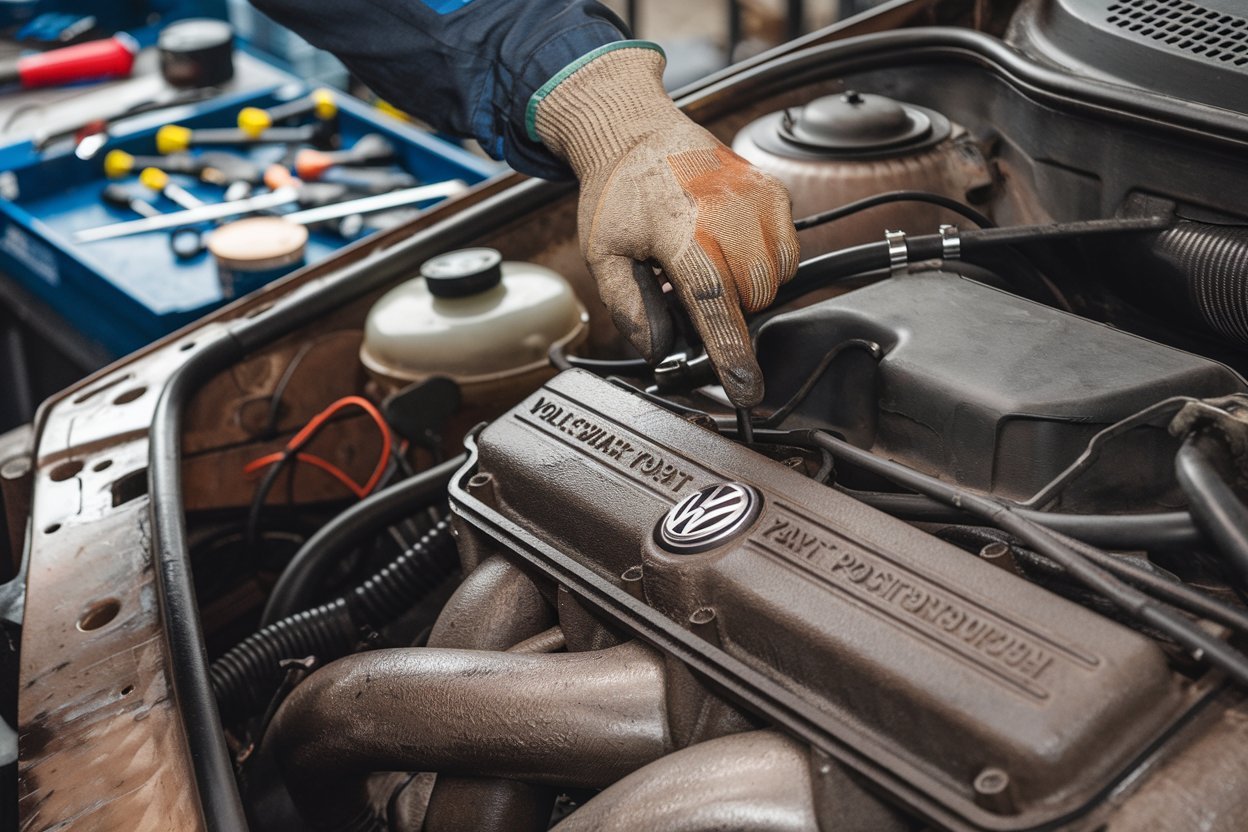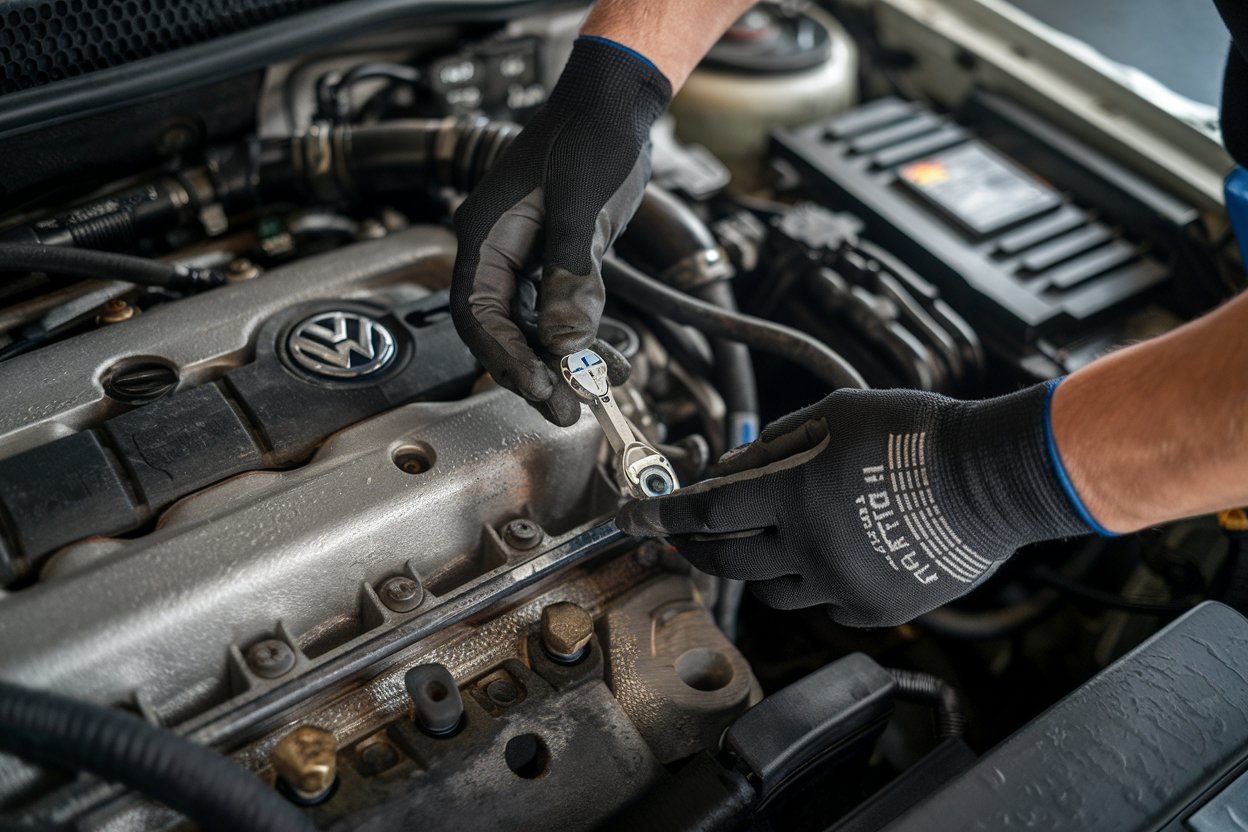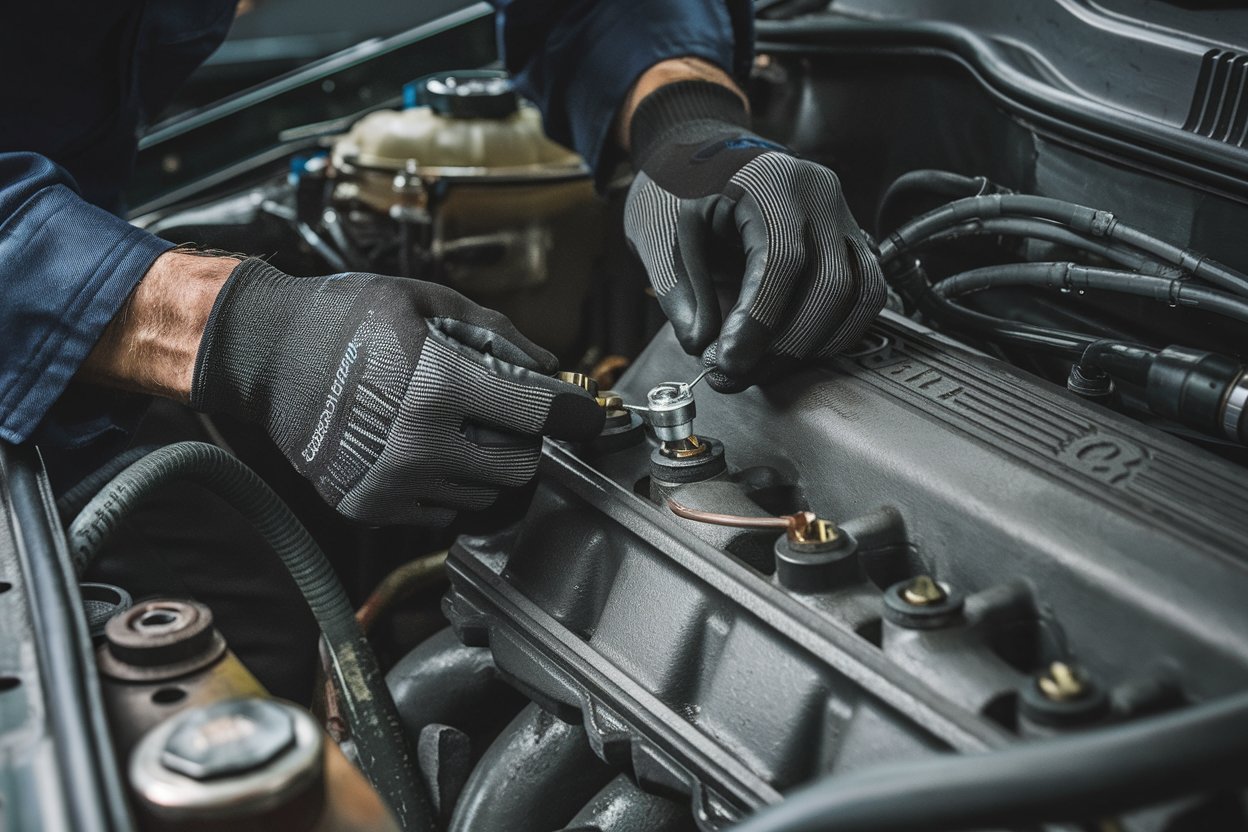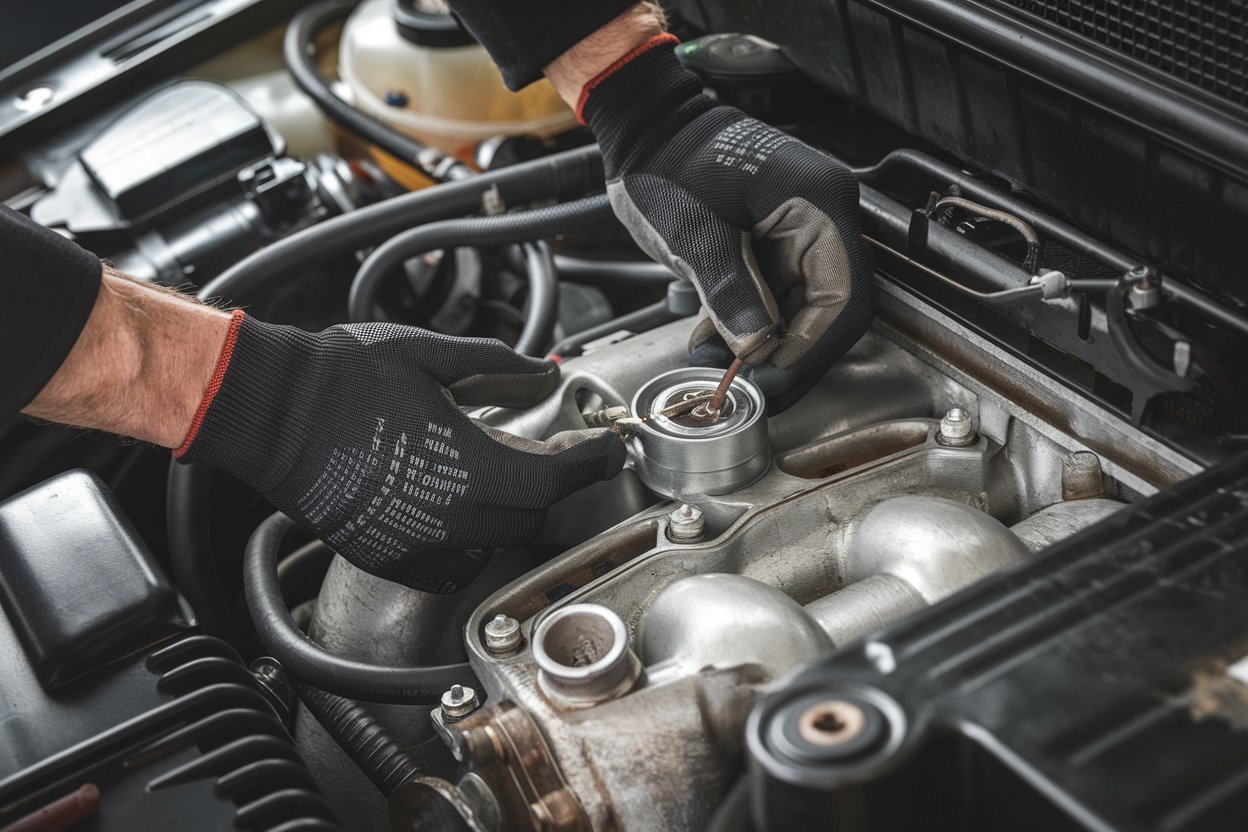Is Your Volkswagen Caddy Struggling to Start or Misfiring? It Could Be the Crank Sensor! Your VW Caddy’s crankshaft position sensor plays a crucial role in engine timing and performance. When it starts failing, you may experience hard starts, engine misfires, rough idling, or even complete stalling. Ignoring the warning signs can lead to worse fuel efficiency, loss of power, or unexpected breakdowns.
At our specialized Volkswagen service center in Dubai, we offer fast and reliable VW Caddy crank sensor replacement using only genuine or high-quality OEM parts. Our expert technicians diagnose the issue accurately and replace the faulty sensor with precision—ensuring smooth performance, reliable starts, and improved fuel efficiency.

A faulty crank sensor can cause a range of problems, making your driving unpredictable. If you notice any of these issues, it’s time for a professional inspection.
✅ Engine Stalling or Shutting Off Randomly – The sensor sends signals to the ECU for timing. If it fails, your engine may cut out unexpectedly.
✅ Hard Starting or No Start at All – If your Caddy cranks but doesn’t start, the sensor might not be delivering proper signals to the ignition system.
✅ Check Engine Light is On – A faulty crank sensor will often trigger an engine code, warning you of potential failure.
✅ Engine Misfires & Poor Acceleration – The sensor helps control ignition timing. A failing one can cause hesitation, rough idling, and loss of power.
✅ Poor Fuel Economy – A malfunctioning sensor disrupts fuel injection timing, leading to increased fuel consumption.
💡 Pro Tip: A failing crankshaft sensor can cause serious engine performance issues. Don’t wait until it completely fails—get it replaced before it leaves you stranded.
Crankshaft sensors are exposed to heat, vibrations, and contaminants, which can cause them to wear out over time. Here are the most common causes of failure:
🔹 Heat Damage & Overheating – The sensor sits near the engine and can get damaged due to excessive heat exposure.
🔹 Oil & Coolant Leaks – Leaks can cause contamination, leading to sensor failure over time.
🔹 Wiring & Electrical Issues – Corroded or frayed wires can interrupt signal transmission, causing intermittent failure.
🔹 Normal Wear & Tear – Over time, internal components break down, affecting accuracy and performance.
🔹 Vibrations & Engine Movement – Excessive engine vibrations can loosen or damage the sensor, leading to erratic signals.

Replacing a crankshaft position sensor requires precision to avoid timing errors and performance issues. Here’s how our experts handle it:
We scan your VW Caddy’s ECU to confirm the issue and pinpoint the faulty crank sensor.
We disconnect the battery to avoid electrical damage and short circuits during the repair.
The faulty crank sensor is carefully removed, and the surrounding components are checked for leaks or wiring damage.
We replace the faulty sensor with a genuine or OEM-quality crankshaft sensor, ensuring proper alignment and fitment.
The battery is reconnected, and we perform ECU adaptation to sync the new sensor with the engine’s timing system.
We test the vehicle under real driving conditions to ensure smooth engine performance, proper acceleration, and stable idling.

The cost of replacing a VW Caddy’s crankshaft position sensor depends on the sensor type, labor, and any additional repairs required. Below is a general price estimate:
|
Service |
Estimated Cost (AED) |
|
Genuine VW Crankshaft Sensor |
AED 400 – 700 |
|
OEM-Quality Crankshaft Sensor |
AED 300 – 500 |
|
Labor Cost |
AED 250 – 450 |
|
Full Crank Sensor Diagnosis & Replacement |
AED 600 – 1,200 |
💡 Investing in a high-quality sensor ensures longer lifespan, better accuracy, and smoother engine performance.
When it comes to sensor replacements, accuracy and expertise matter. Here’s why we’re the right choice for your Volkswagen Caddy:
✅ VW Specialists – Our technicians have extensive experience with Volkswagen engine diagnostics and sensor replacements.
✅ Genuine & High-Quality Parts – We use only original or OEM-grade crank sensors for maximum performance and durability.
✅ Advanced ECU Programming – After installation, we recalibrate the ECU to sync with the new sensor, preventing false readings or engine misfires.
✅ Affordable & Transparent Pricing – No hidden charges, just fair pricing with a detailed cost breakdown before any work begins.
✅ Fast Turnaround Time – Most crank sensor replacements are completed within 1-2 hours, minimizing downtime.
✅ Warranty on Parts & Labor – We offer a warranty on both the sensor and installation, ensuring long-term reliability.

Joseph K., who manages a fleet of Volkswagen Caddy vans for a delivery service, reported that one of his vehicles was struggling to start, randomly stalling, and experiencing sudden power loss while driving. Initially, the problem was occasional, but within weeks, the van wouldn’t start at all after prolonged parking.
As his fleet depended on daily operations, any vehicle downtime affected business productivity. Joseph needed a fast, accurate diagnosis and an urgent repair to avoid prolonged disruptions.
When Joseph brought his Caddy to our Volkswagen service center in Dubai, our specialists conducted a thorough engine diagnostic test. The scan retrieved a P0335 error code, indicating a crankshaft position sensor failure.
Additional symptoms confirming the issue:
✔ Long cranking time before the engine starts
✔ Erratic RPM fluctuations while idling
✔ Engine misfiring and running rough at low speeds
✔ Occasional stalls, especially in stop-and-go traffic
Our inspection also checked the wiring harness and sensor connections to rule out related electrical issues.
After confirming that the crank sensor was completely faulty, we recommended a genuine Volkswagen crankshaft position sensor replacement.
1️⃣ Battery Disconnection – Ensuring a safe replacement without electrical surges.
2️⃣ Sensor Removal – The old sensor was detached from its crankshaft position.
3️⃣ New OEM Sensor Installation – A Volkswagen original crank sensor was installed for maximum reliability.
4️⃣ Wiring & Connector Check – The new sensor was connected, and the wiring was checked for damage.
5️⃣ ECU Reset & Test Drive – The vehicle’s ECU was recalibrated, and a test drive confirmed the issue was fully resolved.
✔️ Smooth gear shifts with no more resistance.
✔️ Restored power delivery – no clutch slippage.
✔️ Lower fuel consumption – better efficiency.
✔️ Reliable performance – ready for daily deliveries without interruptions.
💬 Customer Feedback:“The difference is night and day! My Caddy feels brand new, and the replacement was quick and professional. No more delivery delays!”
🗣 Joseph K.: “The team diagnosed and fixed the issue the same day. My Caddy runs smoothly again, and I avoided a costly breakdown. Professional and efficient service!”
A failing crankshaft sensor can cause engine no-start issues, misfires, and unexpected stalls. Ignoring these symptoms can lead to complete breakdowns and higher repair costs. If your Volkswagen Caddy is showing similar signs, a quick sensor replacement can restore performance and prevent further issues.
💡 Experiencing crank sensor issues? Book your Volkswagen Caddy crank sensor replacement in Dubai today! 🚗
"My VW Caddy had starting issues, and no other garage could figure it out. These guys diagnosed and replaced the crank sensor in under 2 hours—great service!"

Book a Call Back Now
🚗 Don’t let a faulty crank sensor leave you stranded! If your VW Caddy is stalling, misfiring, or struggling to start, it’s time for a crank sensor replacement.
Call or WhatsApp us now to schedule an inspection and get back on the road with confidence!
“Talk to a Volkswagen Expert Now by booking a call, and get personalised solutions for your Volkswagen unique needs and requirements.”
+971564646081
